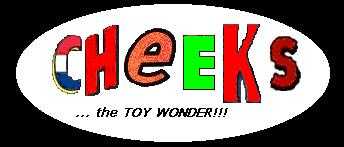
Unca Cheeks the Toy Wonder's Silver Age Comics Web Site!
In the final analysis... perhaps the only truly "essential" Avenger.
Noline-up of characters for that august assemblage has ever seemed "right" without him somewhere within its ranks; no line-up with him as a component has ever seemed to make sense unless he was solidly at its forefront, leading the charge.
From the day he was first re-introduced into the Silver Age Marvel universe -- after having been found frozen in deccades-long sleep, somewhere in the Antarctic -- he has seemed (to me, at any rate) the indisputable nucleus of that reality; with its remaining heroes revolving around him like protons, and its villains circling him (at a safe and respectful distance) like electrons.
Not that the two have always remained separate and distinct, mind you.
Nick Fury and Captain America have always had awhich-wolf- is-the-Alpha-male relationship, regardless of all the times they've found themselves soldiering on behalf of the same noble cause.
This is, I think, because each sees the American "garden" -- and the question of How Does One Tend It Best -- in fundamentally different terms. Fury doesn't mind getting the flesh-and-blood equivalent of dirt beneath his fingernails; for him, it is enough simply to identify the garden's "weeds," and yank them from the earth... unless setting the entire garden on fire is called for, of course.
Captain America, on the other hand, is the Great Cultivator: to him, every plant is equally worthy of life, regardless of how twisted its growth, or (seemingly) alien its genus.
However: having said that... I, for one, have always felt just the slightest bit uncomfortable with the notion of Captain America working so closely alongside any branch of the government, no matter how benign its stated intentions in any particular. Having so iconic a character -- one draped in this country's own red, white and blue bunting, no less -- seems to lend an imprimatur of official sanction; as if the "Uncle Sam" from a recruiting poster, say, were to stand shoulder-to-shoulder with a phalanx of CIA "black ops" agents and confidently declare: "Whatever these boys feel necessary..."
Much better, I think, to keep the Captain's adventures (by and large, at any rate) soundly and sensibly within the parameters of super-hero convention.
Which brings us, of course, to the matter of the Avengersonce more.
The facts speak for themselves: Captain America was re-introduced into Marvel continuity in issue #4 of THE AVENGERS. By issue #10 [see accompanying cover], he was manning the helm -- and airily barking orders at the likes of Iron Man and Thor -- with the easy and manifest self-assurance of Patton deploying a battalion of tanks against Erwin Rommel.
When one stops to consider just how proud and self-assured a roster the Avengers boasted of at the time -- including one of the world's most brilliant bio-chemists; the world's wealthiest captain of industry; and an actual Norse deity -- the realization that they all willingly surrendered their battlefield initiative and loyalties to a man twenty years adrift from his own era -- is stunning testimonial, surely, to the Captain's seemingly inborn gifts of strategy; tactics; and personal initiative.
More impressive still, however, was the manner in which the Captain molded a rag-tag assemblage of raw, untested Avengers recruits (Hawkeye; Quicksilver; and the Scarlet Witch) into a fighting force fully the equal of the later-disbanded original Avengers -- in teamwork and efficacy, if not (obviously) levels of raw power.
The three newest Avengers, it should be remembered, were -- at that point, anyway -- all recently reformed super-villains: nakedly distrustful of one another, and openly disdained by both the general populace within the Marvel universe (in general) and its more established and puissant super-villains (in particular). A lesser man might well have been excused for throwing his hands up into the air and declaring the situation unworkable on its very face; at the very least, they would almost certainly have "settled" for an Avengers less able to handle the "big" Marvel menaces of the day.
Captain America had the team ticking as smoothly as an Indy race car engine before the year was out... and the accompanying cover lends ample evidence as to just how reticent he was in leading them into battle against the creme a la creme of the super-villain aristocracy.
In fact, it often seemed as if the single qualitythe Captain prized most in a potential Avengers recruit was precisely that sort of stubborn independence and cantankerousness in general.
Case in point: the Captain extended an invitation to the (then) little-known foreign monarch known only as the Black Panther, based upon little more than the first-hand knowledge that -- having duked it out with the ebon-claad princeling, in the course of one of Marvel's obligatory oh-wait-you - mean-you're-a -good-guy-too dustups -- the gentleman could readily account for himself in combat situations.
Not to underscore the point with strokes too broad or pronounced... but: the Captain has always been displayed to greatest natural advantage whenever held aloft alongside some other Marvel hero (or heroes) against whom his own unique qualities stand out in boldest relief.
The Silver Age CAPTAIN AMERICA: Page
TWO
The Silver Age CAPTAIN AMERICA: Page THREE
"MORE COMIC BOOKS," YOU SAY...?
The DC Comics Sub-Directory
The Marvel Comics Sub-Directory
The Miscellaneous Comics Sub-Directory
The "Gotta Find That DC Character" Menu
The "Gotta Find That Marvel/Miscellaneous
Character" Menu